OUR WORK
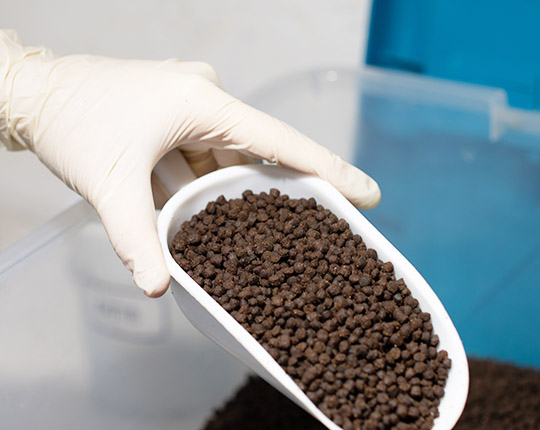
Biology 4.0
Biology 4.0 consists of pre-trials in which smart feeding and management technology, and novel feed ingredients will be tested. iboss technology will be subjected to preliminary testing in different environments with different fish species. This will provide information about technological and data requirements for later work packages. Sensors will be selected and calibrated for biological and behavioral variables important for aquaculture system management. An additional task is the testing of organic residues from various economic processes as a substrate for the production of novel fish feed ingredients, such as microalgae.

Public deliverables
 D1.2 Biology online and integration in feeding monitoring systems
D1.2 Biology online and integration in feeding monitoring systems
 D1.4 Digital twin of feeding process (model simulation and report)
D1.4 Digital twin of feeding process (model simulation and report)
 D1.6 Valorisation of byproducts and sludge
D1.6 Valorisation of byproducts and sludge
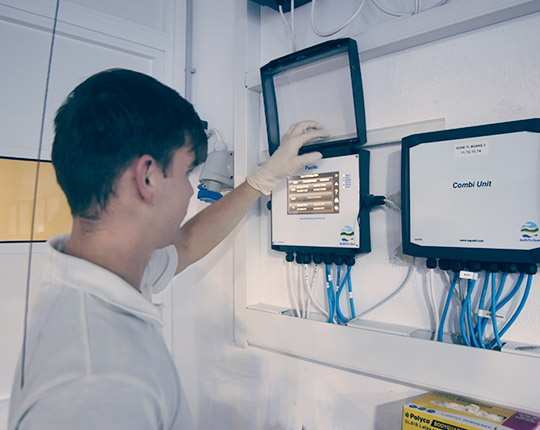
IoT/AI Technology integration
IoT/AI Technology integration builds upon the foundations developed in Biology 4.0. Sensors and feeders etc. will be incorporated into an ‘Internet of Things’ environment. This includes the development of data aggregation and analytical processes that interact with sensors, artificial intelligence learning and cloud data storage.
- IoT: Bring sensors and actuators (feeders) into state of the art IoT environment. Integrate all sensors including new ones if needed, and interface with feeders in controlled manner. Bring the data and actions into an open IoT architecture including advanced network features (e.g. using Fiware) in order to be able to process a broad range of data.
- AI: Provide additional data,, perform data analytics, and use AI features in order to develop smart feeding algorithms.

Public deliverables
 D2.1 iFishIENCi Data Management and Access (report and dataset)
D2.1 iFishIENCi Data Management and Access (report and dataset)
 D2.2 IoT open architecture and new elements specifications
D2.2 IoT open architecture and new elements specifications
 D2.4 Report on final Smart feeding AI
D2.4 Report on final Smart feeding AI
 D2.5 iFishIENCi Technology Packages (Report and prototypes)
D2.5 iFishIENCi Technology Packages (Report and prototypes)
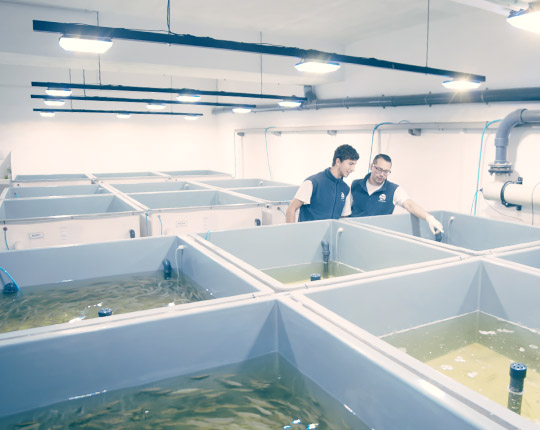
Demonstration in Operational Environments
Demonstration in Operational Environments is the testing phase where the developed iboss technology, including sensors, automated feeders, artificial intelligence and novel feed formulations will be tested in commercial environments. The technology will be trialled with different species of fish such as seabass, African clarias catfish, Atlantic salmon, and tilapia, grown in different systems such as Recirculating Aquaculture Systems, open-sea cages, semi-enclosed containment technology, ponds and raceways. The developed new feeds and technologies and small-scale pilots tested in controlled environments, will be scaled-up in large-scale demonstration experiments in Work Package 3.
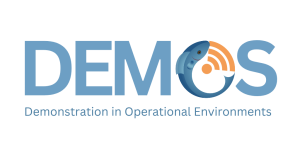
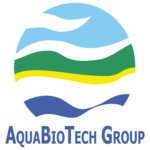
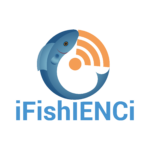
Public deliverables
 D3.2 Demonstration performance (KPIs) for marine open systems
D3.2 Demonstration performance (KPIs) for marine open systems
 D3.3 Demonstration performance (KPIs) for S-CCS
D3.3 Demonstration performance (KPIs) for S-CCS
 D3.4 Demonstration performance (KPIs) for RAS
D3.4 Demonstration performance (KPIs) for RAS
 D3.5 Demonstration performance (KPIs) for land-based flowthrough system
D3.5 Demonstration performance (KPIs) for land-based flowthrough system
 D3.6 Assessment of organoleptic and nutritional quality of fish products from the demonstration tests
D3.6 Assessment of organoleptic and nutritional quality of fish products from the demonstration tests
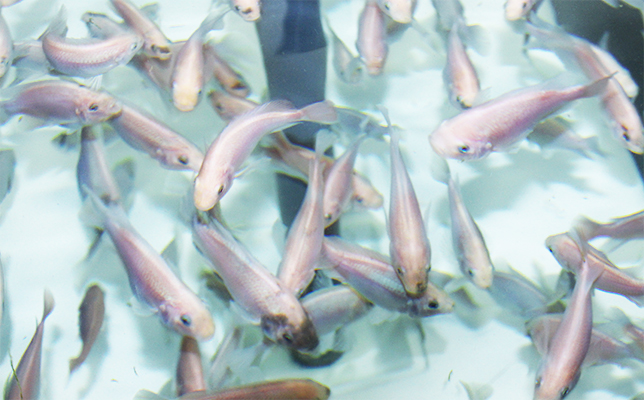
Sustainability and Circularity Assessments
The sustainability and circularity assessments will explore various aspects of sustainability relative to various aspects of the iFishIENCi project. Life Cycle Assessment will be used to explore how the application of the new technology affect various aquaculture systems and products in terms of their environmental performance. It will also be used to explore how the production of novel feed ingredients can influence the sustainability of feeding cultivated fish species. Additionally, social acceptance and economic assessments will be performed, as will analysis of relevant environmental legal and regulatory frameworks.
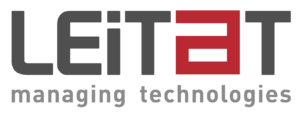
Public deliverables
 D4.2 Report on Social Acceptance Analysis
D4.2 Report on Social Acceptance Analysis
 D4.3 Report on Climate change scenarios and impacts
D4.3 Report on Climate change scenarios and impacts
 D4.5 Report on circularity of the iFishIENCi approach
D4.5 Report on circularity of the iFishIENCi approach
 D4.8 Report on environmental life cycle assessment
D4.8 Report on environmental life cycle assessment
 D4.11 Report on Life cycle costing and cost feasibility analysis
D4.11 Report on Life cycle costing and cost feasibility analysis
 D4.12 Report on regulatory framework and requirements 1st version
D4.12 Report on regulatory framework and requirements 1st version
 D4.13 Report on regulatory framework and requirements 2nd version
D4.13 Report on regulatory framework and requirements 2nd version
 D4.14 Report on regulatory framework and requirements 3rd version
D4.14 Report on regulatory framework and requirements 3rd version
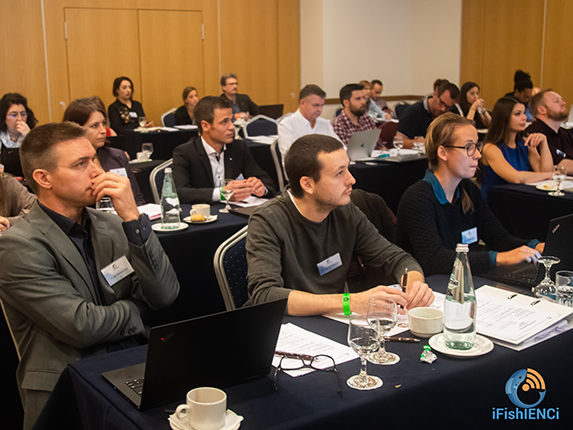
Exploitation and Replicability
The objective of exploitation and replicability is to guarantee that the outcomes of iFishIENCi supported by high level decision making. This includes the establishment of a business plan to comercialise iboss technology at a European and International level. A study of the relevant markets will be carried out from the very early stages of the project.
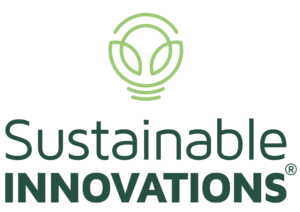

Public deliverables
 D5.3 Comprehensive analysis about the Business enablers 2nd version
D5.3 Comprehensive analysis about the Business enablers 2nd version
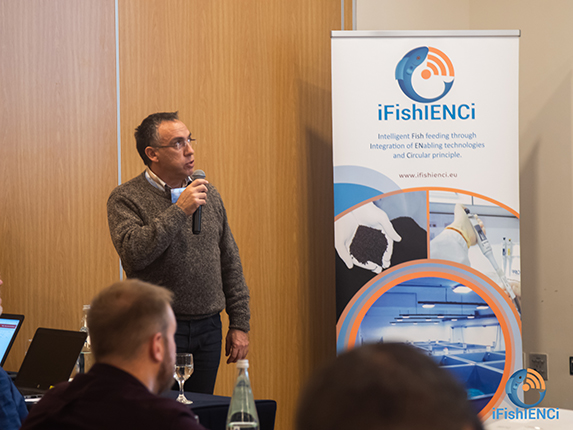
RRI, Dissemination and capacity building
RRI, Dissemination and capacity building aims to develop and apply an innovative Responsible Research and Innovation (RRI) platform that focuses on practices of “inreach” within the entire consortium and outreach to stakeholders and society. Methods from social science,anthropology) and the philosophy of science will be used to ensure the research conducted and its technological outcomes are ethical and responsible from a multiple of perspectives.


Public deliverables
 D6.1 iFishIENCi Responsible Research & Innovation (RRI) Inreach Framework
D6.1 iFishIENCi Responsible Research & Innovation (RRI) Inreach Framework
 D6.5 Overview on stakeholder engagement actions – Aquaculture sector
D6.5 Overview on stakeholder engagement actions – Aquaculture sector
 D6.7 Overview on stakeholder engagement actions – Customers
D6.7 Overview on stakeholder engagement actions – Customers
 D6.9 Overview on stakeholder engagement actions – Policy-makers
D6.9 Overview on stakeholder engagement actions – Policy-makers
 D6.10 Training Tutorials and academic curricula
D6.10 Training Tutorials and academic curricula
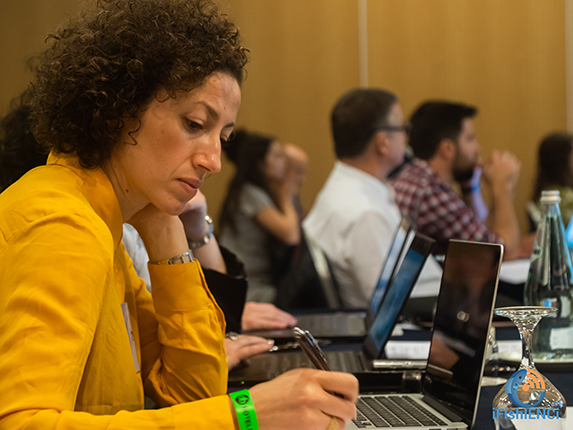
Project Management
The main decisions of the project will be taken by a Scientific Committee, which will be formed by representatives of each WP. These decisions will be implemented through regular meetings and correspondence among the consortium members. They will ensure the efficient, smooth and timely execution of the project.

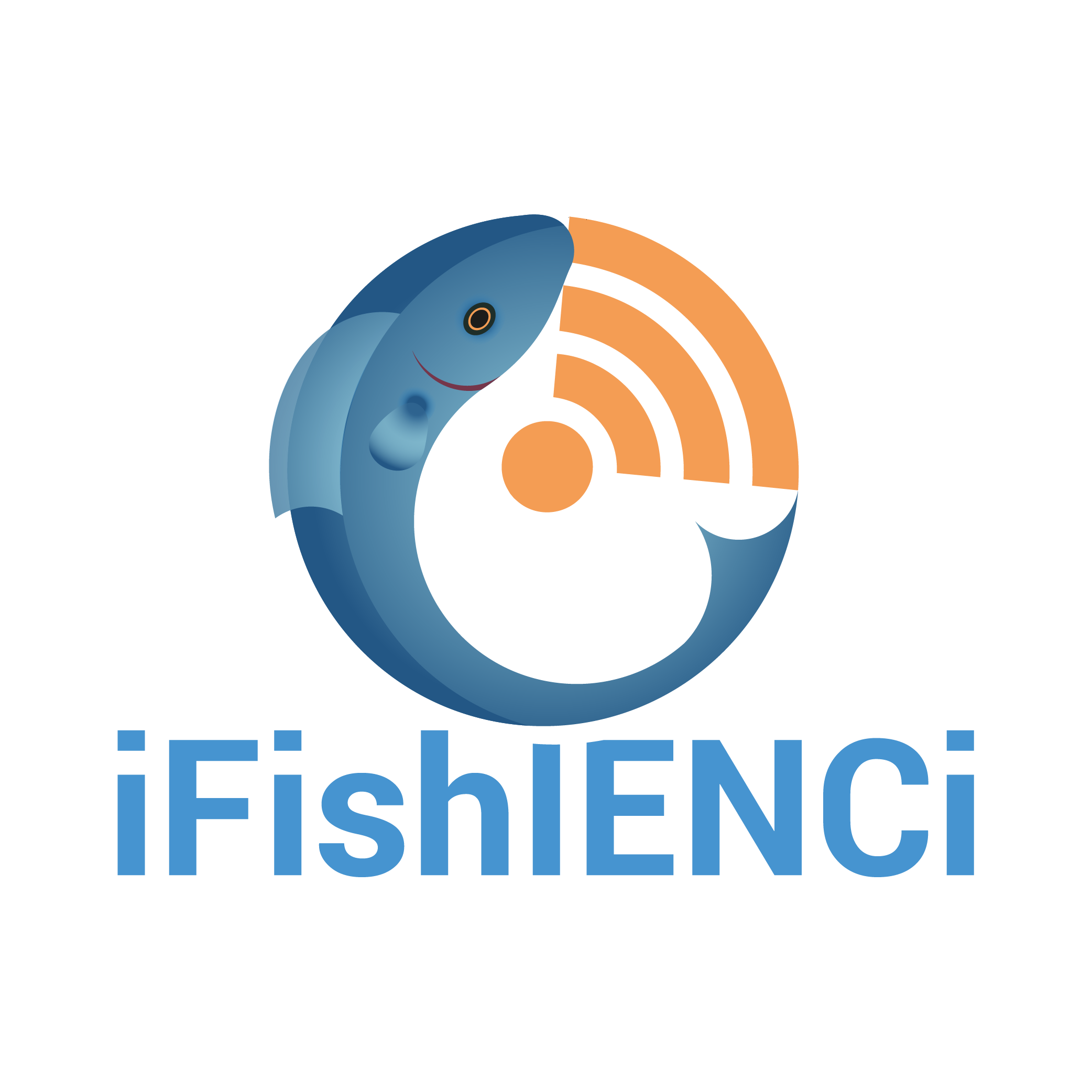




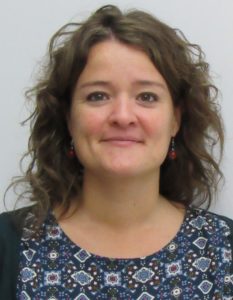





 D7.4 Champions report
D7.4 Champions report